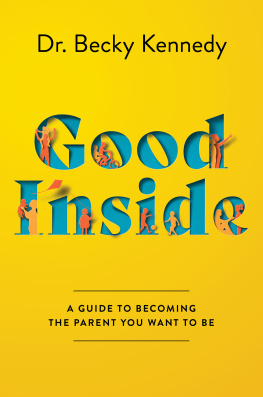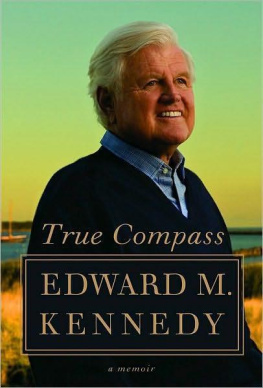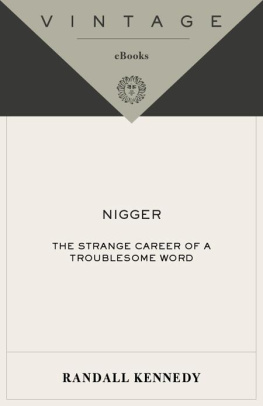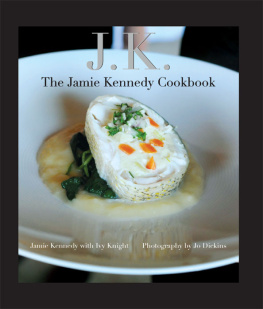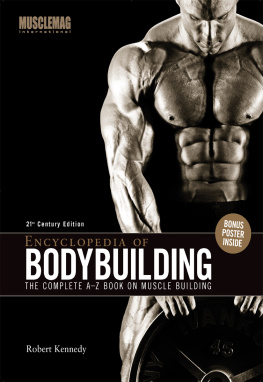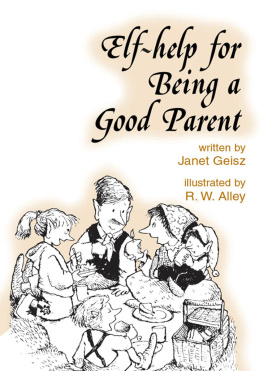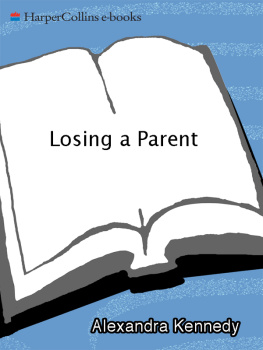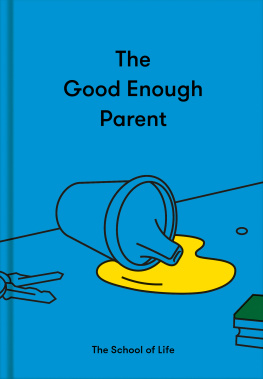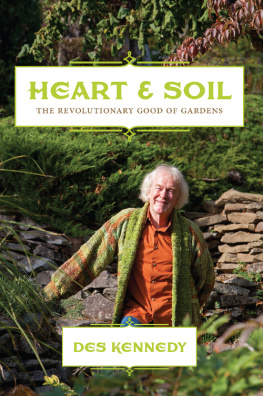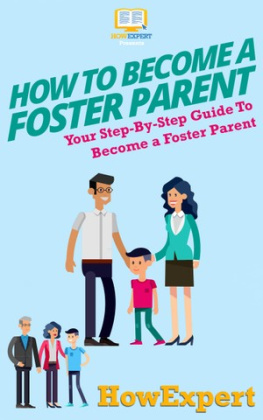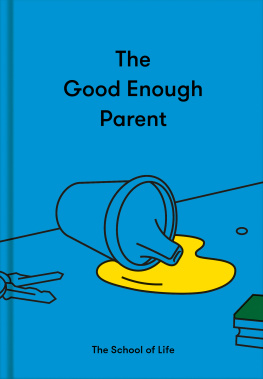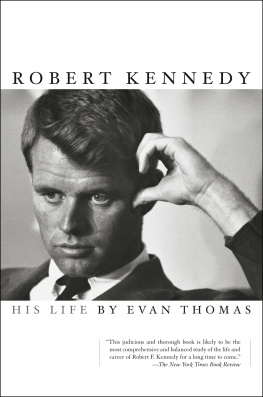Kennedy - Good Inside : A Guide to Becoming the Parent You Want to Be (9780063159471)
Here you can read online Kennedy - Good Inside : A Guide to Becoming the Parent You Want to Be (9780063159471) full text of the book (entire story) in english for free. Download pdf and epub, get meaning, cover and reviews about this ebook. year: 2022, publisher: HarperCollins, genre: Children. Description of the work, (preface) as well as reviews are available. Best literature library LitArk.com created for fans of good reading and offers a wide selection of genres:
Romance novel
Science fiction
Adventure
Detective
Science
History
Home and family
Prose
Art
Politics
Computer
Non-fiction
Religion
Business
Children
Humor
Choose a favorite category and find really read worthwhile books. Enjoy immersion in the world of imagination, feel the emotions of the characters or learn something new for yourself, make an fascinating discovery.
Good Inside : A Guide to Becoming the Parent You Want to Be (9780063159471): summary, description and annotation
We offer to read an annotation, description, summary or preface (depends on what the author of the book "Good Inside : A Guide to Becoming the Parent You Want to Be (9780063159471)" wrote himself). If you haven't found the necessary information about the book — write in the comments, we will try to find it.
Good Inside : A Guide to Becoming the Parent You Want to Be (9780063159471) — read online for free the complete book (whole text) full work
Below is the text of the book, divided by pages. System saving the place of the last page read, allows you to conveniently read the book "Good Inside : A Guide to Becoming the Parent You Want to Be (9780063159471)" online for free, without having to search again every time where you left off. Put a bookmark, and you can go to the page where you finished reading at any time.
Font size:
Interval:
Bookmark:
To my husband, who is the grounding force in my life, and my kids, who have taught me more than I will ever teach them.
Dr. Becky, my five-year-old is in a stage where shes mean to her sister, rude to us, and melting down at school. We feel totally stuck. Can you help?
Dr. Becky, why is my potty-trained child suddenly peeing all over the house? Weve tried using rewards and punishments and nothing is changing. Can you help?
Dr. Becky, my twelve-year-old never listens to me! Its infuriating. Can you help?
Y es. I can help. We can figure this out.
As a clinical psychologist with a long-standing private practice, I work with parents who seek me out to problem-solve through the tricky situations that leave them feeling frustrated, depleted, and hopeless. Though on the surface the situations are uniquethe smart-mouthed five-year-old, the regressing potty-trained toddler, the defiant preteenthe underlying desire is the same: all parents want to do better. I am essentially told and retold: I know the parent I want to be. I dont know how to get there. Please help me fill the gap.
During our sessions, parents and I start by unpacking a problem behavior together. Behavior is a clue to what a childand, often, an entire family systemis struggling with. As we investigate behaviors, we get to know the child better, we learn about what this child needs and what skills theyre missing, we uncover a parents triggers and areas for growth, and we move from a place of Whats wrong with my child and can you fix them? to What is my child struggling with and whats my role in helping them? And hopefully also, Whats coming up for ME about this situation?
My work with parents centers on helping them move from a place of despair and frustration to one of hope, empowerment, and even self-reflectionall without leaning on many of the most commonly promoted parenting strategies. You will not see me recommend time-outs, sticker charts, punishments, rewards, or ignoring as a response to challenging behaviors. What do I recommend? First and foremost, an understanding that behaviors are only the tip of the iceberg, and that below the surface is a childs entire internal world, just begging to be understood.
When I was in my clinical psychology PhD program at Columbia and working in the clinic, I did play therapy with kids. While I loved treating children, I quickly grew frustrated by the limited contact I had with parents, often wishing I was also working with the parents rather than working directly with the child and talking to the parent adjunctively. Simultaneously, I was also counseling adult clients, and I became fascinated by an undeniable connection: with the adults it was so clear where, in childhood, things went awrywhere a childs needs werent met or behaviors were a cry for help that was never answered. I realized that if I looked at what adults needed and never received, I could use that knowledge to inform my work with children and families.
When I opened my private practice, I worked solely with adults for therapy or parent guidance. After I became a mother myself, I increased my parent guidance workboth in one-on-one consultations and in ongoing monthly parenting groups. Eventually I enrolled in a training program for clinicians that proclaimed it offered an evidence-based and gold-standard approach to discipline and troubling behavior in children. The methods it taught felt logical and clean, and I walked away having learned about the same interventions that are regularly promoted by parenting experts today. I felt like I had learned a perfect system to extinguish undesirable behavior and encourage more prosocial behaviorbasically, behavior that was more compliant and more convenient to parents. Except, a few weeks later, something struck me: this felt awful. Every time I heard myself give this evidence-based guidance, I felt sick to my stomach. I couldnt shake the nagging suspicion that these interventionswhich certainly wouldnt feel good if someone used them on mecouldnt be the right approach to use with kids.
Yes, these systems made logical sense, but they focused on eradicating bad behaviors and enforcing compliance at the expense of the parent-child relationship. Time-outs, for example, were encouraged to change behavior... but what about the fact that they sent kids away at the exact moments they needed their parents the most? Where was... well... the humanity?
Heres the thing I realized: these evidence-based approaches were built on principles of behaviorism, a theory of learning that focuses on observable actions rather than non-observable mental states like feelings and thoughts and urges. Behaviorism privileges shaping behavior above understanding behavior. It sees behavior as the whole picture rather than an expression of underlying unmet needs. This is why, I realized, these evidence-based approaches felt so bad to methey confused the signal (what was really going on for a child) with the noise (behavior). After all, our goal is not to shape behavior. Our goal is to raise humans.
As soon as this realization crept in, I couldnt shake it. I knew there had to be a way of working with families that was effective without sacrificing the connection between parent and child. And so I got to work, taking everything I knew about attachment, mindfulness, and internal family systemsall theoretical approaches that have informed my private practiceand translating these ideas into a method for working with parents that was concrete, accessible, and easy to understand.
It turns out, switching our parenting mindset from consequences to connection does not have to mean ceding family control to our children. While I resist time-outs, punishments, consequences, and ignoring, theres nothing about my parenting style thats permissive or fragile. My approach promotes firm boundaries, parental authority, and sturdy leadership, all while maintaining positive relationships, trust, and respect.
In my work with patients, I often say that two things are true: practical, solution-based strategies can also promote deeper healing. Many parenting philosophies compel parents to make a choice: they can improve a childs behavior at the cost of their relationship, or they can prioritize the relationship while sacrificing a clear path to better behavior. With the approach offered in this book, parents can do better on the outside and feel better on the inside. They can strengthen their relationship with their child and see improved behavior and cooperation.
This underlying message, that these two things are true, is at the core of so much of what youre about to read. The information is theory driven and strategy rich; it is evidence based and creatively intuitive; it prioritizes the self-care of a parent and the well-being of a child. A client may come to my office looking for a set of strategies to fix their kids behavior, but they leave with so much more: a nuanced understanding of the child underneath the behavior and a set of tools that puts this understanding into practice. My hope is that after reading this book you will walk away with the same. I hope you emerge with renewed self-compassion, self-regulation, and self-confidence, and feel equipped to wire your children for these important qualities as well.
This book is an initiation into a parenting model that is as much about self-development as it is about child development. The first ten chapters consist of the parenting principles I live byat home with my own three kids, in my office with clients and their families, and on social media, with the many parents Ive connected with over the years. My intention with these principles is to promote healing in children
Font size:
Interval:
Bookmark:
Similar books «Good Inside : A Guide to Becoming the Parent You Want to Be (9780063159471)»
Look at similar books to Good Inside : A Guide to Becoming the Parent You Want to Be (9780063159471). We have selected literature similar in name and meaning in the hope of providing readers with more options to find new, interesting, not yet read works.
Discussion, reviews of the book Good Inside : A Guide to Becoming the Parent You Want to Be (9780063159471) and just readers' own opinions. Leave your comments, write what you think about the work, its meaning or the main characters. Specify what exactly you liked and what you didn't like, and why you think so.

